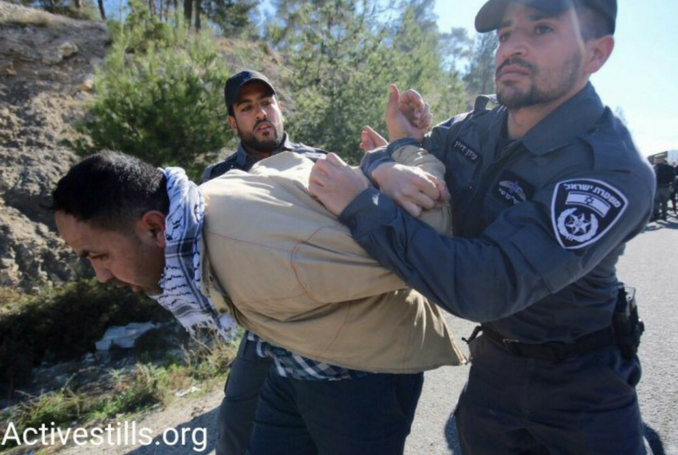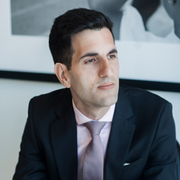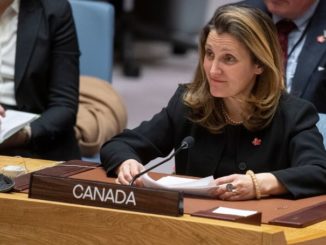
Last Sunday I attended a live talk online featuring Palestinian human rights lawyer and activist, Jonathan Kuttab. The talk, entitled “What is required of our church to be in solidarity with Palestine?”, was hosted by the Middle East Working Group—comprised of the Toronto-based Bathurst, Bloor Street and Trinity-St. Paul’s congregations, part of the United Church of Canada (UCC).
Kuttab discussed a lot about what’s been happening in Palestine, present and historically, and certainly did not shy away from addressing Israel’s oppressive role therein such as the expansion of illegal, Jewish-only settlements in the West Bank that have displaced and disposed of countless Palestinians.
What really stuck out for me is what Kuttab shared from the very outset of the talk. That is, his understandable and justifiable frustration over the UCC’s failure to—in any substantive sense—commit itself to Palestinian justice.
Articulating this Kuttab stated:
“Very briefly I want to communicate that Sabeel [Palestinian Christian group] in Jerusalem and Palestinians generally were very upset by what happened at the convention where a number of initiatives by UCC churches [strongly opposed to Israeli apartheid] were totally sidelined and the whole issue was pushed off [by influential UCC members]. …This is actually the fight. The fight is a spiritual fight that’s taking place. And it’s taking place in the churches, as well as the community at large. “
Kuttab’s observation has since left me thinking about what a “church”, let alone a Christian one like the UCC, is in essence. Often people think of it physically, namely a building or structure where people go to worship.
Certainly, I thought of church this way, for most of my childhood. Sundays my parents insisted that I had to “go to church”, which meant dressing up in neat Italian clothing my mother would buy on Toronto’s St. Clair Avenue—home to many shops that imported the clothing from Italy. If I protested there would be trouble. And maybe my nonna (Italian grandmother) would chide me: “God is with you always. You can thank Him at least an hour a week at church mass.”
At a deeper level church is not simply architectural. Rather, reflecting its etymology, “church” is a community, people relating to one another as human beings—guided by strong Christian principles. I believe American Catholic anarchist and activist, Dorothy Day, captures well how such a notion pans out:
We who think in terms of community, at least have the assurance, the conviction, that we are on the right path, going in the right direction, taking the right means to achieve the goal of increased love of God through an increased and proven love of our brothers.
So, many these days have taken violent steps to gain the things of this world—war to achieve peace; coercion to achieve freedom; striving to gain what slips through the fingers. We might as well give up our great desires, at least our hopes of doing great things towards achieving them, right at the beginning. In a way it is like that paradox of the gospel, I’ve given up on life, in order to save it.
For those not particularly religious you can substitute where Day says “God” with “humanity.” It does not change the main import of her observation, namely, community involves its members pursuing what is best for the dignity and welfare of all and who are willing to make difficult or painful sacrifices to that end. Not in any thin or symbolic but very real sense.
Within the context of the church, again understood here as a community underpinned by Christian principles, this means contesting and fighting against all forms of injustice. Not some. Christian principles, like the righteous tenets of Judaism, Islam, and many other faiths, are not limited—in their application—to any one people. According to these principles if it is wrong to oppress Israelis then it is wrong to oppress Palestinians, as Israelis (in the form of state actors, military personnel, settler vigilantes, etc.) do routinely.
For the same reason, I believe the UCC, as concerns Palestine justice, is not acting as a church. They have many of the trappings of one—buildings, congregations, pews where they sit, etc. But unlike a church, properly understood, UCC fails to firmly oppose Israel. Instead, it is trying to be “diplomatic”, “fair-minded”, and perhaps “apolitical” so as to be “friends” with both Palestine and Israel.
Nice as that might sound, in so far as we desire that people generally get along, it is morally irresponsible, not to mention unChristian. Following Christ’s own example, UCC ought, without descending to a level of hatred or malice, take the side of Palestine over Israel. Palestine and not Israel is the oppressed, subjected to the state’s constant abuse, harm and deprivation of basic rights and freedoms (mobility, safety from arbitrary military violence, access to adequate water, food, healthcare, etc.). Simply for being Palestinian Israel keeps them in a virtual hell, made to feel helpless and live in constant fear that—any moment—they or their loved ones may die at the hands of Israel.
No church should be tolerant of that. Not for a second. Church, as Day reminds us, is about love. Where that’s missing you have evil, regimes like Israel that are unnecessarily antagonistic and injurious to human life. Love, justice, and peaceful co-existence—precious aspects of human life—is rendered impossible.
It’s also here that the “spiritual battle” identified by Kuttab thrives, undermining the possibility of a church that cohesively acts in solidarity in Palestine. That can never be a community that is serious about ending Israeli oppression once and for all.

– Paul Salvatori is a Toronto-based journalist, community worker and artist. Much of his work on Palestine involves public education, such as through his recently created interview series, “Palestine in Perspective” (The Dark Room Podcast), where he speaks with writers, scholars and activists. He contributed this article to The Palestine Chronicle.








